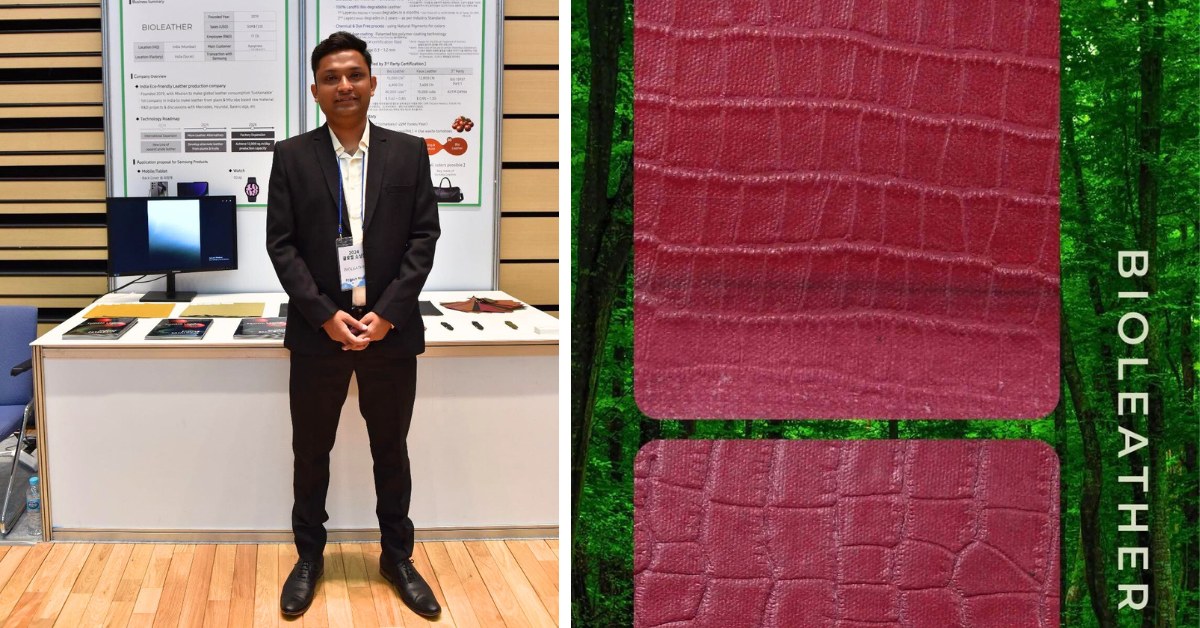What if your next pair of shoes or handbag was made from tomatoes instead of animal hide? For 26-year-old innovator Pritesh Mistry, that’s no longer a futuristic idea but a reality. His startup, The Bio Company (TBC), is transforming tomato waste into Bioleather — a vegan, biodegradable alternative to animal leather.
The innovation, which has already bagged the Best Innovation in Textile Award at the PETA Vegan Fashion Awards 2021, is changing the way we look at food waste and sustainable fashion.
Why Tomatoes?
India produces nearly 44 million tonnes of tomatoes annually, but around 30-35% goes to waste. Instead of rotting in landfills, the fruit’s skin and seeds are now being turned into durable, flexible, and eco-friendly Bioleather.
“Tomatoes are rich in pectin, which makes the leather strong and flexible. Their natural oils and fibrous structure give it a unique texture,” explains Mistry.
The Journey
Armed with a biotechnology degree from Thadomal Shahani Engineering College, Mistry’s journey began as a college project. While visiting Kanpur’s tanneries, he saw the devastating pollution caused by traditional leather-making. At the same time, he witnessed staggering food waste on farms.
“These experiences made me realise there had to be a better way—something that addressed both waste and pollution,” he recalls. Months of experiments later, he developed the first prototype of Bioleather in 2019.
How Tomato Leather is Made
At TBC’s Surat plant, tomato waste from farms and food processors is combined with plant-based binders, natural fibres, and biopolymers. The material is then cured through a non-toxic process and coated with a plant-based finish to make it water-resistant and durable—without using PU or PVC.
The result? A 100% biodegradable, vegan leather that looks and feels like the real thing.

Who’s Using It?
From jackets, handbags, and footwear to potential use in automotive upholstery, Bioleather is being embraced by sustainable brands worldwide.
“Bioleather’s origin—rejected tomatoes—makes it truly extraordinary,” says Natasha Mangwani, founder of Toronto-based vegan handbag label Satuhati, which has already launched products with it.
Currently, TBC produces 5,000 meters of Bioleather per month, with plans to scale up as demand rises.
The Bigger Picture
By turning farm waste into a sustainable material for fashion and lifestyle, Pritesh Mistry is tackling two global problems at once: food waste and leather pollution.
“Our mission is simple — to make affordable, sustainable leather that doesn’t harm animals or the planet,” he says.
At just 26, Mistry is proving that innovation rooted in sustainability can redefine industries and give waste a fashionable second life.


